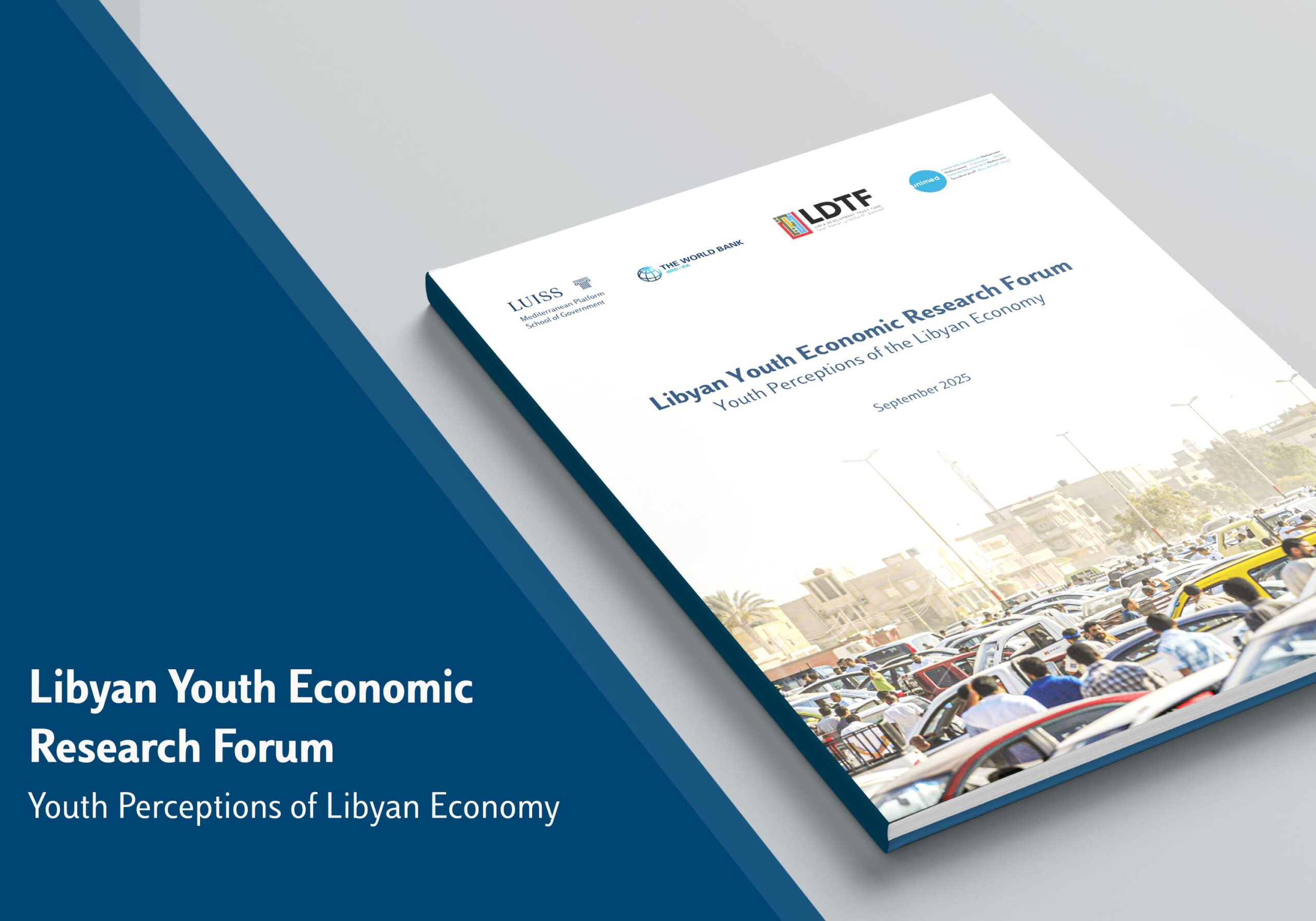Report of the Libyan Youth Economic Research Forum: Youth Perceptions of the Libyan Economy

Summary
The Youth Economic Research Forum is a World Bank project implemented by the Luiss Mediterranean Platform, in partnership with the Union of Mediterranean Universities. The project took the first step in building an inclusive platform for young Libyans to think about and contribute to the discussion of Libya’s economic development potential. It engaged students from across the country and built their research and policy dialogue skills. In addition, the project provided participants with the opportunity to research a topic of their choice and promoted their voices on the key challenges and opportunities with regards to Libya’s economic development.
This report in front of you is the culmination of the young researchers’ efforts. By shedding light on the perspectives of young Libyans, it complements the economic research conducted by the World Bank and other international institutions. Recognizing the often-limited capacity of international organizations to engage deeply with issues at the local level, the report also aims to bridge this gap by directly integrating the insights and experiences of Libyan youth into current research efforts to support a more grounded understanding of Libya’s evolving economic landscape.
This final report is the product of close collaboration between the Luiss Mediterranean Platform team and the Libyan participants. The research process began with the participants drafting structured research notes which were then reviewed, analyzed, and reworked to produce the final report, bringing together the most relevant findings in a policy-oriented format.
The 12 research topics cover priority issues grouped in three areas: 1) people and society; 2) economy and services; and 3) institutions and public life. The analysis suggests possible entry points for addressing these priority issues, as well as how doing so could steer Libya toward a path of sustainable economic development. The findings provide valuable insights into what the younger generations perceive to be the country’s most pressing challenges and can serve as important indications for policymakers as they design and adapt policy responses.